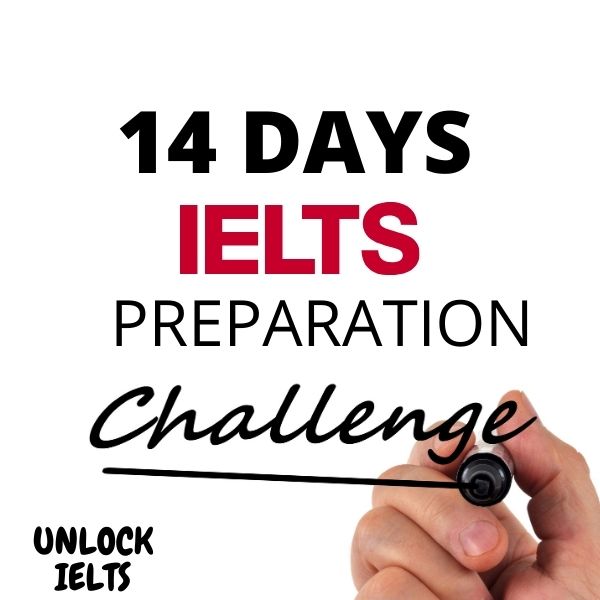Title: Top 10 Myths About Preparing for the IELTS Exam Debunked: Unlock Your Potential with UnlockIELTS.com
Introduction:
Are you preparing for the IELTS exam? Are you worried about falling prey to common myths that can hinder your chances of success? Don't panic! In this blog post, we are going to debunk the top 10 misconceptions about preparing for the IELTS exam and equip you with valuable insights to approach your preparation with confidence. Additionally, we will introduce you to UnlockIELTS.com, a leading platform that offers top-notch study materials designed specifically for Indian learners who aspire to excel in the IELTS exam. Let's dive in and unlock your potential!
1. Myth #1 - You can't improve your English proficiency in a short time:
Many test-takers believe that it takes years to improve their language skills. However, this is nothing more than a myth! We will debunk this belief and provide you with strategies for efficient learning and quick progress. Whether it's utilizing flashcards, practicing daily conversations with native speakers, or immersing yourself in English media, there are numerous techniques that can help you improve faster than you think.
2. Myth #2 - Only native speakers achieve high scores:
Don't let anyone tell you that non-native speakers cannot excel in the IELTS exam! This is a pervasive misconception that needs to be addressed. We will break down this myth by sharing inspiring stories of successful non-native speaker test-takers and their strategies for overcoming language barriers. With dedication and effective preparation, anyone can achieve an outstanding score on the IELTS exam.
3. Myth #3 - Contradictory advice from multiple sources is helpful:
In today's digital age, information overload is all too common. Many test-takers receive conflicting advice from different sources regarding IELTS preparation techniques. We will guide you through this maze by helping you navigate through contradictory information and find reliable resources. Learn how to choose reputable study materials, reputable teachers, and credible online platforms like UnlockIELTS.com.
4. Myth #4 - Memorizing model answers guarantees a high score:
Memorization can only take you so far in the IELTS exam. Many test-takers fall into the trap of solely focusing on memorizing model answers without truly understanding concepts. We will debunk this myth by emphasizing the importance of critical thinking and improvisation skills. By developing these skills, you'll be able to tackle any question or topic that comes your way confidently.
5. Myth #5 – You need a tutor or expensive coaching classes to succeed:
One of the most common misconceptions about IELTS preparation is that professional help is essential for success. While having a qualified tutor can be beneficial, it's not always necessary, especially if budget constraints are an issue. We will debunk this myth by providing self-study tips, recommending online resources, and exploring affordable alternatives, including UnlockIELTS.com's comprehensive study materials that are specifically designed for Indian learners.
6. Myth #6 – Practicing sample tests is enough preparation:
Many test-takers believe that practicing sample tests alone is sufficient for a good score on the IELTS exam. However, this couldn't be further from the truth! We will dive deeper into why sample tests alone are not enough and provide strategies for comprehensive practice, including language improvement techniques. UnlockIELTS.com offers an unrivaled collection of books that cover all four sections of the exam - Listening, Reading, Writing, and Speaking - with proven strategies and numerous practice exercises.
7. Myth #7 – Reading extensively is not necessary:
Another common misconception about IELTS preparation is that reading extensively is irrelevant in improving language skills. However, reading widely plays a vital role in enhancing your language proficiency. We will explore the importance of diverse reading materials and how they help improve your vocabulary, comprehension, and overall language competency. UnlockIELTS.com's study materials include carefully curated reading passages that expose you to a wide range of topics and writing styles.
8. Myth #8 – Grammar mistakes lead to low scores:
Many test-takers fear making grammar errors in the IELTS exam as they believe it will result in a low score. However, while correct grammar is important, perfection is not the ultimate goal. We will address this fear by providing tips for avoiding common grammar mistakes and showcasing your language skills effectively. UnlockIELTS.com's study materials offer clear explanations of grammar rules and plenty of practice exercises to reinforce your understanding.
9. Myth #9 – Clear pronunciation is the ultimate goal:
Test-takers often mistakenly believe that perfect pronunciation guarantees a high score on the IELTS speaking section. However, clarity, fluency, and effective communication are equally important factors to consider. We will challenge this myth by focusing on techniques that will enhance all aspects of your spoken English, helping you communicate confidently during the speaking test.
10. Myth #10 – One-size-fits-all approach to preparation works for everyone:
Lastly, many test-takers assume that a single strategy or study plan suits all kinds of candidates. This one-size-fits-all approach is yet another myth we need to debunk! Identifying individual strengths and weaknesses is crucial for tailoring an effective study plan. We will guide you through personalized study plans, targeted practice techniques offered on UnlockIELTS.com, which takes into account your specific needs as an Indian learner.
Conclusion:
Don't let these myths hold you back from achieving exceptional scores on your IELTS exam. Arm yourself with knowledge, debunk false beliefs, and adopt strategies that truly work for you! Visit UnlockIELTS.com today to access their unrivaled collection of study materials designed specifically for Indian test-takers like yourself. Prepare smarter and unlock your true potential in the IELTS exam. Good luck!







Write a public review